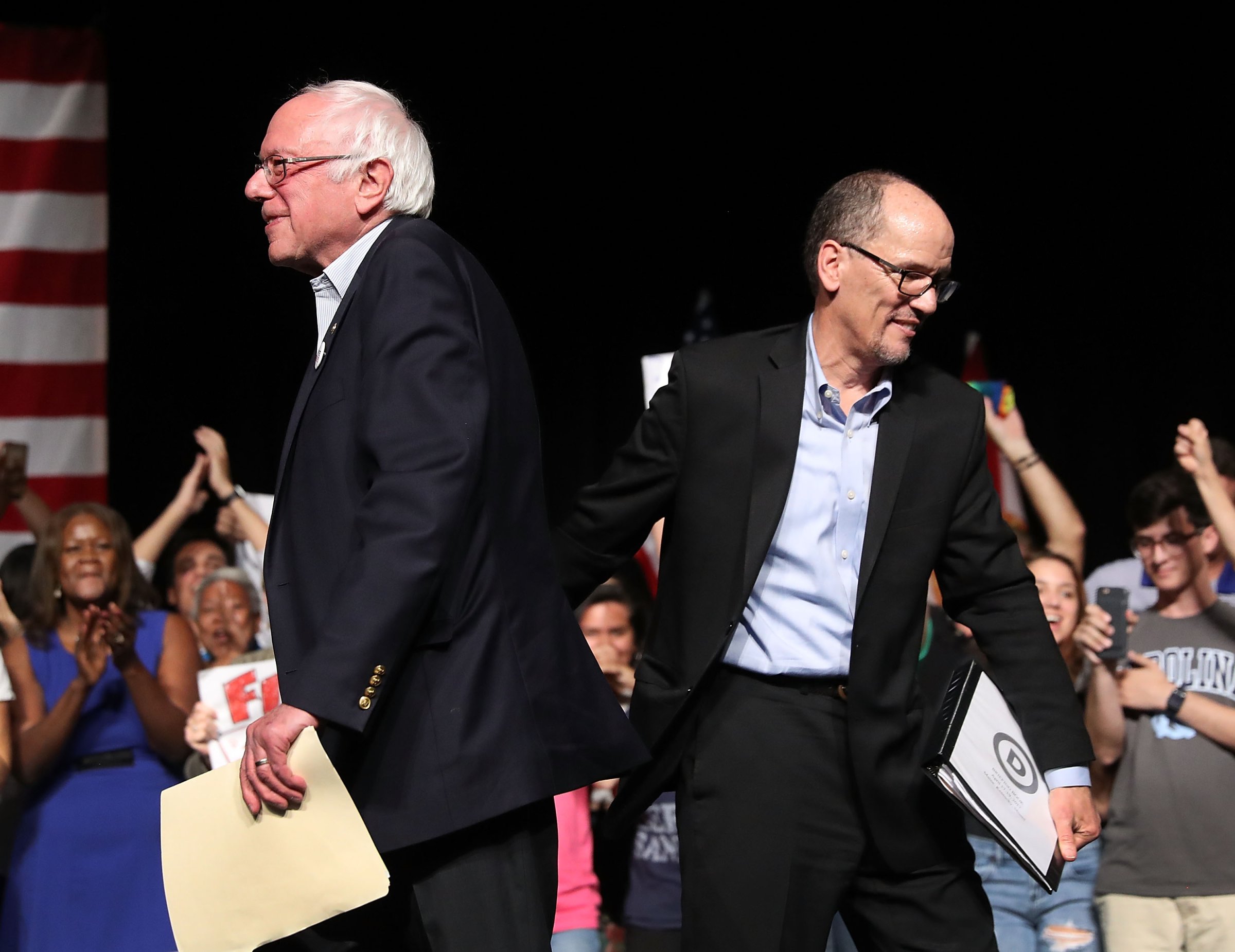
Lasswell is a MSc Political Science and Political Economy student at the London School of Economics and Political Science.
As the Trump spectacle ensnares a wider range of victims, there has been an unexpected casualty: the Democratic message. For all the vehement, reflexive — and warranted — objection to this Administration, a simple question has been lost in the high-stakes Trump controversies: What would a nation led by Democrats actually look like?
It’s clear that the Democratic leadership hopes to simply allow the cartoonish evil of Trump’s GOP to carry them through the next elections. “I need you all to help us play defense,” DNC Chairman Tom Perez reportedly told protestors demanding support for single-payer health care last month, “this is the most dangerous time of our lifetime.” In February, House Minority Leader Nancy Pelosi ruled out Tea Party–style rebellion in future primaries. “We don’t have a party orthodoxy,” she said. “They [the Republicans] are ideological.”
And yet, ongoing Republican intransigence presents the Democrats with the opportunity to capitalize on an energized, young base that has grown sick of being told to help “play defense.” The Democrats should feel liberated by their current powerlessness. It allows them to propose simple, idealistic policies that excite people, with no repercussions. Without the ability to pass legislation, there’s no need to make pre-emptive concessions — not to the illusory political middle that led them to a defeat in the presidential election, and not to an opposition that would howl at any proposal they make.
Instead, Democrats are regressing to the comfort zone of Bill Clinton’s Third Way politics and Fukuyama’s “end of history” null hypothesis: the stubborn, technocratic belief that there is a “correct” and “incorrect” way to govern that completely circumvents ideology and principles, appealing to reason over emotion. Being “right” and “right-thinking” is the Democrats’ raison d’être, and if there’s a “wrong” way to govern, the bombastic, touchy Trump is it.
But when post-partisanship is an end in itself, Democrats are stuck defending confusing legislation like the Affordable Care Act (ACA), rather than a coherent ideology. We tip-toe around an obvious principle — all citizens deserve access to affordable health care — while leaving the underlying structures intact.
The election proved that young voters are inspired by a different kind of politics. Bernie Sanders earned more primary votes from young people than Clinton and Trump combined, and just 18% of millennial Clinton voters were “excited” about a Clinton coronation. While young people voted for the Democrats in similar number to 2012, fewer identified as members of the party. Paid registration for the Democratic Socialists of America also tripled after Trump’s victory to 19,000 members, and more than half of those who joined were under the age of 30.
Health care demonstrates the massive potential of a truly left-wing politics driven by youth enthusiasm. Fifty-eight percent of all Americans — Republicans and Independents included — support replacing the ACA with a federally funded health care system, and nothing prevents Democrats from adopting such an ambitious proposal in the abstract. The more likely result — a web of incentive schemes and ACA tweaks — is made all the more galling by its inevitability.
Last month, Pelosi poignantly reminded a Vice News reporter that she had supported single-payer health care since before he was born, but claimed the lack of political will in Congress precluded it from the national platform. If condescension from a stale Democratic establishment is all that can be expected, why not attempt a new path? Why not aggravate and agitate for popular policies? Can the Democratic Party be fit for purpose if its incoherence allowed a decisive segment of America to believe Trump leads the party of working people?
Young people have good reason to share in the fear and #MAGA nostalgia associated with Trump voters. Despite being more educated and work-obsessed, we’ll probably be worse off than our parents thanks to suffocating debt, precarious work arrangements, stagnant wages and caring for an aging population. Throw in huge, festering crises like climate change, income inequality and a monetary regime with an uncertain future, and remember that, while we did not create these problems, they will be our responsibility. Millennials need a party with its sights set higher than impeachment.
Successful Democratic campaigns are about New Deals, Great Societies and Change; that fact remains in the current moment of global electoral chaos. Democrats can win a mandate and get back into power if they’re willing to stand for something — not just against the President. A record number of Americans think the government should “do more” to solve society’s problems, and through commitments on key progressive issues like health care, infrastructure, education and poverty, the Democrats can. But that involves a vision of the future, and playing a whole lot of offense.
More Must-Reads from TIME
- Introducing the 2024 TIME100 Next
- The Reinvention of J.D. Vance
- How to Survive Election Season Without Losing Your Mind
- Welcome to the Golden Age of Scams
- Did the Pandemic Break Our Brains?
- The Many Lives of Jack Antonoff
- 33 True Crime Documentaries That Shaped the Genre
- Why Gut Health Issues Are More Common in Women
Contact us at letters@time.com